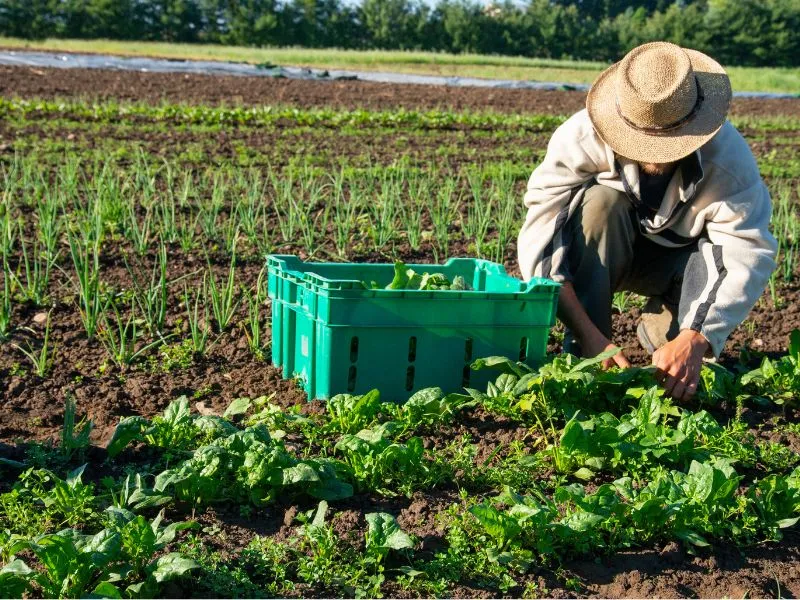In recent years, we’ve seen the word ‘sustainable’ everywhere. From fashion to food to travel, sustainability has become an integral part of our lives and affects every decision we make.
But what does it actually mean?
Sustainability refers to the ability to sustain something over the long term without depleting resources, damaging the environment or compromising the well-being of current and future generations. With this in mind, it’s no wonder that so many industries are trying to adopt it, and although the travel industry is making great strides in the right direction, it’s still a long way behind and remains one of the most polluting industries out there.
That said, as a consumer you have a lot of power in your hands and you can already reduce your carbon footprint and minimise your impact on the environment by making conscious choices, whether that means flying less or opting for eco-friendly accommodation.
Here are a few tips for adopting sustainable travel practices. By adopting them, you can help preserve the environment, support local communities and ensure a more responsible travel experience.
Eco-Friendly Travel: Tips for Sustainable and Responsible Travel.

1.Focus on the journey, not the destination.
Travel has changed enormously in recent years and is now consumed in the same way as fast fashion. It’s all about seeing as many places as possible, as quickly as possible. But this way of thinking and travelling is not sustainable.
Instead, we need to get back to what travel was all about in the first place – slowing down. One way to do this is to focus on the journey and not the destination.

Flying has become the default choice for most of us, but the best way to slow down is to vary your means of transport and even, wherever possible, to avoid air travel altogether.
If you can spare the time, why not experiment with other ways of travelling and have some fun along the way? In fact, it’s sometimes cheaper and easier to travel by alternative modes such as train or ferry.
If flying is unavoidable, choose non-stop flights when travelling long distances, as take-offs and landings contribute significantly to carbon emissions and you can even consider offsetting your carbon emissions to balance out the impact of your travel on the environment. Many airlines and organisations offer options to purchase carbon credits that fund carbon reduction projects, and you can also take a look at airlines that are actively investing in clean biofuel technology, such as Lufthansa and American Airlines.

When you arrive at your destination, stay longer than you would have done (whenever possible) to really experience life in this unique community – and to get around, choose public transport such as the train or bus or other less polluting means, rather than short-haul flights. And don’t forget things like car-sharing, cycling and walking.
2.Choose environmentally-friendly accommodation.
A great way to minimise your impact on the environment and travel responsibly is to choose eco-friendly accommodation.
To do this, it’s important to take certain factors into account when choosing accommodation for your trip. A good starting point is to look for places that have recognised eco-certifications and check their sustainability scores. For example, pay attention to the sustainability scores provided by Booking.com. A higher score indicates a greater commitment to environmentally friendly practices.
These indicate that the establishment follows specific environmental practices. That said, you should be wary, as some establishments hide behind a fancy certification, but the reality behind it is quite different.

There are a few things you can do to make sure the place you’ve booked is environmentally friendly. Make sure the place implements energy-saving practices, such as energy-efficient appliances and smart lighting systems. Another thing to check is that the accommodation has water-saving measures in place, such as low-flow toilets and towel reuse programmes. Eco-friendly accommodation also often has recycling programmes and minimises single-use plastics.

Another thing to consider is the food served. Make sure that the accommodation you have booked gives priority to organic and locally sourced food. Not only does this support local farmers, it also reduces the carbon footprint associated with transporting food over long distances.
Finally, one of the best ways to ensure that the place you’ve booked is environmentally friendly is to see if they involve their guests in environmental education or awareness programmes, which often shows a commitment to sustainability. This could be by providing information on local ecosystems and wildlife conservation.
3.Support local communities and businesses.

Another facet of sustainability is engaging with local communities in a respectful way and getting to know their culture. This means fighting the urge to impose your own culture on the country and community you are visiting. Instead, why not inform yourself about the environmental and social issues of the destinations you visit.
t’s also very important to support local communities and businesses from an economic point of view. One of the questions you should ask yourself is: how can I ensure that the money I spend ends up in the local economy?

Consider staying in locally-owned accommodation, eating in locally-owned restaurants and buying souvenirs in small local shops to contribute directly to the local economy.
4.Leave no trace behind.
Perhaps the most important thing is to leave the place as you found it, so that future travellers can enjoy it as you did. Plastic is on the way out and it’s very easy to avoid. Why not consider investing in a reusable water bottle before your next trip, and if you have any rubbish, dispose of it properly and responsibly by recycling it.

Another important point to stress is to respect the flora and fauna. To do this, follow designated paths and tracks to avoid damaging natural habitats and choose activities that promote environmental conservation, such as hiking, birdwatching or ecological tours, and avoid activities that contribute to deforestation or harm ecosystems.
Remember to take the time to learn more about local culture and customs, so you can truly appreciate all the beautiful places you’re visiting.
Final words on Eco-Friendly Travel: Tips for Sustainable and Responsible Travel.
Sustainble and esponsible travel encompasses many things and involves making conscious choices that minimise your impact on the environment, respect local cultures and make a positive contribution to the communities you visit.

I hope you enjoyed this feature about Eco-Friendly Travel: Tips for Sustainable and Responsible Travel, and you can also have a look more of our travel features.
I will be back soon with more style, lifestyle and travel inspiration and don’t forget to subscribe to the blog below to make sure you never miss a post,



